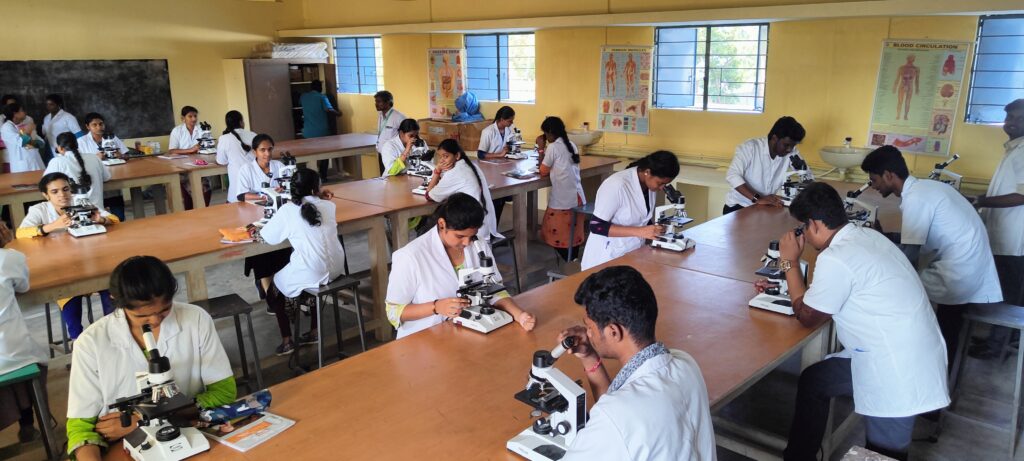Department of physiology

Physiology is indeed an explanation of life. What other subject matter is more fascinating, more exciting, more beautiful than the subject of life? – Arthur C Guyton
Human physiology is the science of the mechanical, physical, and biochemical function of humans, and serves as the foundation of modern medicine. As a discipline, it connects science, medicine, and health, and creates a framework for understanding how the human body adapts to stresses, physical activity, and disease. The department of Physiology has excellent infrastructure and faculties with wide experience and knowledge in different fields of Physiology thus providing quality teaching, research in innovative and emerging fields and clinical services in the university.
- Course Objectives
- Understand in broad terms human physiological structure and function
- Describe functional organization of the human body and control of its internal environment
- Describe the cell, its components and its function
- Demonstrate an understanding of genetic control of protein synthesis, cell function and cell reproduction
- Describe transport of ions and molecules throughout the cell membrane
- Demonstrate an understanding of membrane potentials and action potentials
- Understand how the major controlling systems of the body, endocrine and central nervous system
- Discuss the major regions and functions of the brain and spinal cord
- Describe how hormones react with cell receptors to bring about cell, organ and homeostatic changes
- List the major organs of the endocrine system, examples of their hormones and provide examples of homeostatic control pathways.
